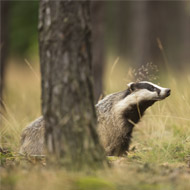APHA confirms TB in Cumbrian badgers

Bovine TB has been identified in badgers in East Cumbria for the first time.
Bovine TB has been identified in badgers in East Cumbria for the first time, the Animal and Plant Health Agency (APHA) has confirmed.
In a statement, the APHA said that the disease was detected as part of routine surveillance in the low-risk region of the country.
This surveillance includes testing badgers killed in road traffic incidents for M. bovis.
An APHA spokesperson said: “A number of bTB breakdowns in cattle herds have been identified in east Cumbria. APHA has carried out a thorough investigation, which found evidence the disease is present in badgers in the area.
“We are working closely with farmers and others affected to assess the extent of disease in the badger population. Additional cattle controls are in place and further action will depend on the results of our surveillance.
“Farmers in the area should continue to practice good biosecurity to minimise the risk of disease spreading to their farms.”
The APHA says that between November 2014 and February 2017, 16 cattle holdings in east Cumbria had been affected.
Investigations into the likely source of the disease and extent of spread in the area are ongoing.



 The BSAVA has opened submissions for the BSAVA Clinical Research Abstracts 2026.
The BSAVA has opened submissions for the BSAVA Clinical Research Abstracts 2026.